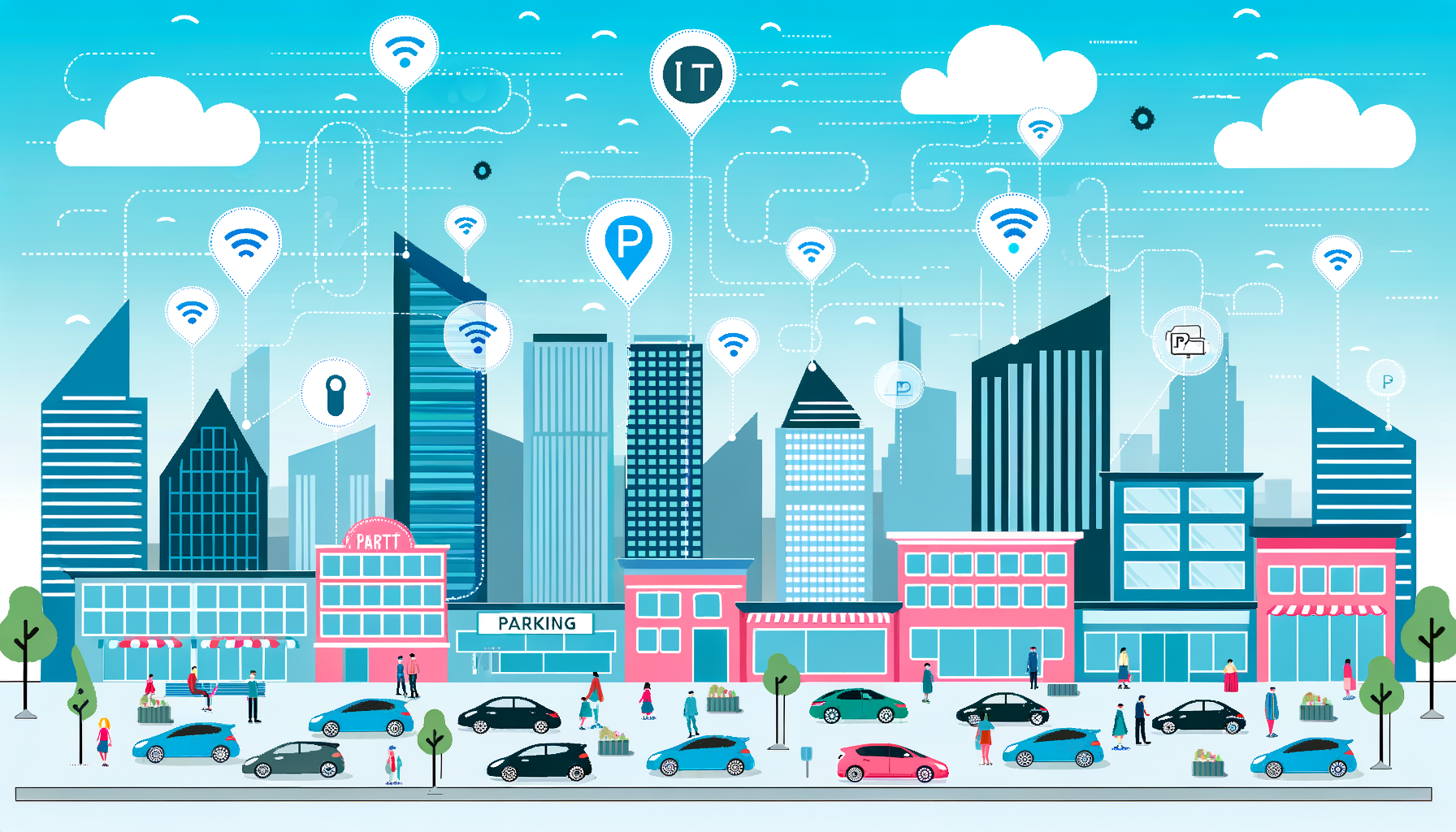Revolutionizing Urban Parking: A Deep Dive into IoT-Driven Solutions

Strong 8k brings an ultra-HD IPTV experience to your living room and your pocket.
In the ever-growing tapestry of smart cities, technology is not just a facilitator; it is an innovator, redefining urban living and seeding new economic landscapes. Emerging at the forefront is the integration of Internet of Things (IoT) technologies into intelligent transportation systems, particularly in solving age-old parking woes. With urbanization surging globally, achieving seamless and efficient parking solutions is both a necessity and a lucrative opportunity for city planners, businesses, and investors alike. Let's explore how IoT-driven smart parking solutions unlock new revenue streams, transforming urban environments profoundly.
The Urban Parking Conundrum
The global urban population is projected to hit 60% by 2030, creating unparalleled pressure on existing infrastructure. Traffic congestion, environmental pollution, and parking inefficiencies have become all-too-common challenges.
Wastage of Resources: Studies show that up to 30% of traffic in urban areas is attributed to vehicles searching for parking.
Environmental Impact: Cars burning fuel aimlessly contribute significantly to environmental degradation, with an exacerbation of air quality issues.
Loss of Time and Money: On average, urban drivers can spend 17 hours annually looking for parking, costing millions in economic productivity.
Enter IoT in Smart Parking
As urban density rises, innovative minds have turned towards IoT to combat parking issues. IoT in smart parking involves using network-connected devices and sensors to detect available parking spaces, monitor them, and relay information in real-time.
Real-Time Data: IoT sensors provide accurate, real-time data about parking availability to apps and signage, allowing drivers to make informed decisions.
Automated Parking: With machine learning and AI integration, cars can directly interact with parking systems, streamlining the parking process through automation.
Predictive Analytics: Harnessing data analytics, these systems can predict parking availability based on historical data and current trends.
Monetizing IoT Smart Parking Solutions
While the direct advantage lies in solving logistical headaches, the true allure for businesses and city planners is in the economic potential these systems bring:
Dynamic Pricing Models
Utilizing data-driven insights, cities can implement dynamic pricing for parking, similar to surge pricing models in ridesharing. During peak times or events, parking fees automatically adjust, capitalizing on higher demand and maximizing revenue.
Data Commercialization
The vast data generated from smart parking is invaluable. Beyond basic traffic statistics, detailed insights into consumer parking habits can be leveraged by:
Urban Planning: Using predictive models to design future infrastructure projects.
Retail Opportunities: Commercial businesses can align their marketing strategies with traffic patterns gleaned from extensive parking data.
App Development: Creating third-party apps that provide custom parking solutions or integrate with broader smart city initiatives.
Energy Savings & Environmental Credits
Smart parking systems contribute to significant energy savings by reducing emissions from fuel wastage. Cities that adopt such solutions may become eligible for government incentives or environmental credits, translating into financial benefits.
Smart Parking: A Platform for Innovation
While reducing the hassle of parking, IoT-driven solutions create collaborative platforms for further technological innovation:
Integration with Autonomous Technology
As autonomous vehicles gain traction, integrating these with smart parking systems paves the way for seamless end-to-end travel experiences. Vehicles can autonomously find, park, and recharge, freeing passenger time.
Expansion into Mobility as a Service (MaaS)
Smart parking solutions can merge with broader MaaS platforms, providing a unified interface for transportation options. This cohesiveness allows service providers to offer complete packages inclusive of rental, ridesharing, and parking solutions.
Challenges and Considerations
While promising, the transition to IoT-powered smart parking is riddled with challenges:
High Initial Costs: The infrastructure needed for full-scale IoT implementation can be dauntingly expensive.
Privacy Concerns: Collecting and utilizing vast amounts of data introduces privacy issues, demanding stringent data protection regulations.
Technical Limitations: Integrating new technology with legacy systems often presents technical bottlenecks.
Looking Ahead
As cities evolve into smarter ecosystems, the adoption of IoT-driven parking solutions stands out as a cornerstone of modern urban planning. Beyond solving logistical conundrums, these systems promise new financial avenues, reduced environmental impact, and enhanced quality of life.
Municipalities, technologists, and investors should view IoT-powered parking solutions not simply as enhancements to urban convenience but as dynamic catalysts for economic transformation. As we move forward, inter-industry collaboration will be pivotal to refine and maximize the potential of these solutions, positioning them as keystones in the future of smart, prosperous cities.
Explore Comprehensive Market Analysis of IoT in Intelligent Transportation System Market
Source - @360iResearch
Note: IndiBlogHub features both user-submitted and editorial content. We do not verify third-party contributions. Read our Disclaimer and Privacy Policyfor details.


